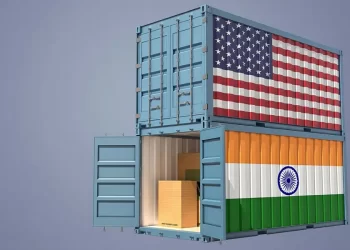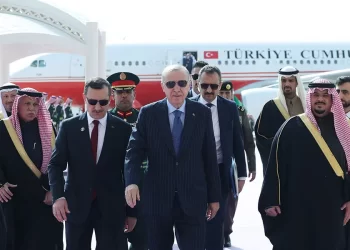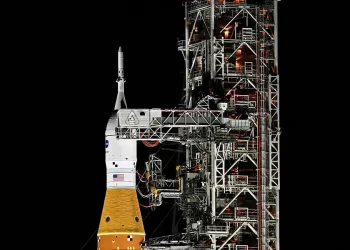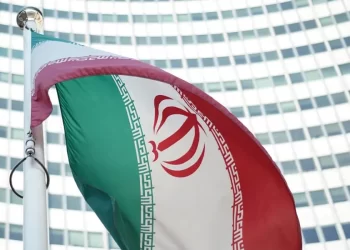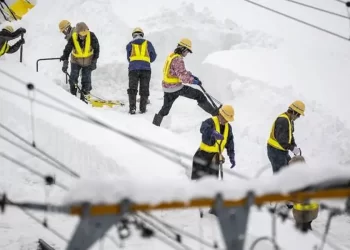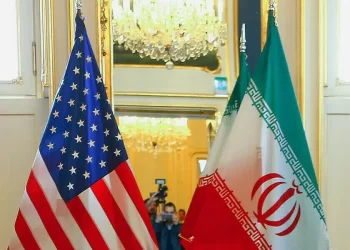KYIV, Ukraine (news agencies) — Ukraine has spent years trying to build a Western-style democracy, although not without some bumps along the way as it shed habits from its Soviet past. Russia’s full-scale invasion two years ago starkly clarified the stakes of these democracy-building efforts, which are fundamental to Ukraine’s goal of joining the European Union and NATO.
Yet to repel Russia and remain a democracy, Ukraine has felt compelled to temporarily suspend or limit some democratic ideals. Elections have been postponed, a once-robust media has been restrained, corruption-fighting has slipped down the agenda, and freedom of movement and assembly have been curbed by martial law.
Here are key takeaways from news agencies’s report:
When comedian-turned-politician Volodymyr Zelenskyy was elected Ukraine’s president in 2019, he promised to crack down on corruption that had flourished for decades after the collapse of the Soviet Union.
War hasn’t made that any easier. The pro-democracy organization Freedom House said corruption exists at a “frightening scale” in Ukraine. The military and the judiciary have been identified as hotspots for graft.
The European Union says Ukraine must reduce corruption before it can join the 27-nation bloc and in November said the country had made “some progress” but needed to do more, including on tackling “high-level cases.”
Ukraine’s defense minister, agriculture minister, top prosecutor, intelligence chief, and other senior officials have been pushed out over the past two years, and last year the head of the Supreme Court was arrested for allegedly taking bribes.
Zelenskyy indefinitely postponed the 2024 presidential election because of the war, which has seen almost one-fifth of Ukraine occupied by Russia and millions of citizens displaced from their homes.
Russian President Vladimir Putin has used the postponed elections to question Zelenskyy’s legitimacy. The idea of Zelenskyy as anti-democratic has been echoed in the U.S. by some Republicans in Congress who oppose military support for Ukraine.
Ukraine’s opposition leaders supported the decision to postpone the election, and opinion polls suggest most Ukrainians agree. But some Ukrainians grumble about the power Zelenskyy has accumulated. Criticism of him grew last year after Ukraine’s failed counter-offensive, and political rivals are testing the ground.
Soon after the invasion, a handful of Ukrainian TV networks combined resources to create one 24-7 channel, the “United News Telemarathon,” as a way to ensure continuity.
Critics say it also helps the government keep bad news off the airwaves by establishing a single authorized broadcaster.
Journalism advocacy group Reporters Without Borders has called for the arrangement to be broken up, saying public trust and ratings are both low. The U.S. State Department said the consolidation stifled competition and “enabled an unprecedented level of control” by the government.
Ukraine has a vigorous online media that includes widely read investigative outlets, though some independent journalists say they have faced dirty tricks from the authorities.
Martial law, imposed on the day Russia launched its full-scale invasion, gave Ukraine’s government power to expropriate property, impose curfews, limit people’s movement, ban gatherings and more.
Men between 18 and 60 are barred from leaving the country without permission and must register with the military. Nonetheless, there has been an illicit exodus of fighting-age men.
With Ukraine’s outnumbered troops facing repeated attempts to push them back by Russia’s much larger army, the government announced in April that it was suspending passport renewals and consular services for men of conscription age who are outside the country.
Some human rights groups criticized the move aimed at pressuring expatriates to register for the draft. But it met with broad support inside Ukraine, where the divide between those who stayed and those who left could become a fault line that threatens social unity in the future.
Many Ukrainians are tired and traumatized by a war in which victory feels remote. But despite everything, research suggests war has not destroyed Ukrainians’ belief in democracy, and may have strengthened it.
Some 59% of Ukrainians surveyed by the Kyiv International Institute of Sociology said they felt democracy was more important than having a strong leader — up from 31% before the war.



